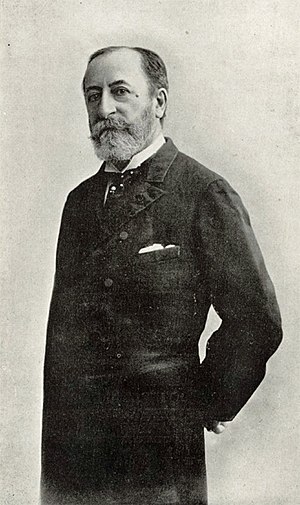Charles-Camille Saint-Saëns (9 October 1835 – 16 December 1921) was a child prodigy, some say even more so than the incomparable Mozart, developing perfect pitch at the age of three, and near perfect piano performance not long afterwards. He trained in the most prestigious of French conservatories. His great love was composition, but to make ends meet he had to play the organ at a thriving parish of 26,000 souls and 200 weddings a year, which puts things into perspective in light of our own era of diminishing faith. Saint-Saëns himself seemed a confirmed bachelor, wedded to his music, but surprised everyone by marrying at the age of nearly forty, to the nineteen-year old Marie-Laure Truffot. The union was not a success. They had two boys, both dying in infancy, one of tuberculosis, the other falling out of a window, an accident for which the composer blamed his wife. Three years later, the composer went off to visit his pupil, Gabriel Fauré, and his family, writing to his wife that he was not returning. They never saw each other again. Saint-Saëns never remarried, nor had any other romantic dalliance. Mrs. Saint-Saëns – perhaps she went by Mlle. Truffot after this – lived her quasi-widowhood until her 95th years.
Such are the ways in the labyrinth of this life. Saint-Saëns continued with his music, and we are left with a treasury, some of which we will post in these pages.
Here is the finale to his organ symphony, No. 3:
Also, for this month of November, here is a piece he composed in 1847, the Danse-Macabre, evincing, perhaps, some of the tragic aspects of his life. The orchestral music follows an old legend wherein the devil plays the violin on All Hallowed Eve at midnight, with the skeletons rising from their graves to dance until dawn, the xylophone symbolizing their rattling bones. Macabre indeed. But we may see the Catholic aspects of the piece, that death does not have the final word. As the book of Ezekiel says, these bones too shall live, not by the devil’s illusory power, but by God’s true omnipotence, with mastery over life and death. If we but follow Him, we we rise with Him. A danse-joyeux, if you will.












